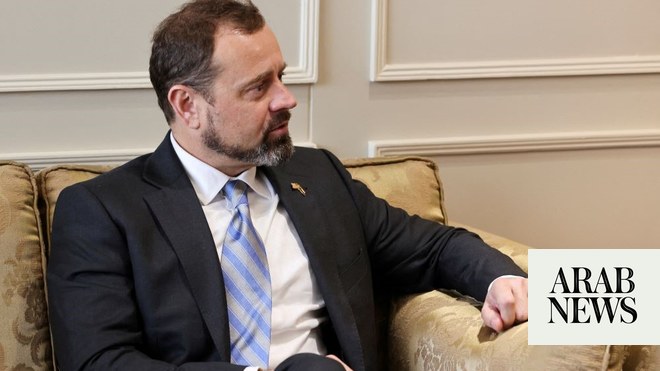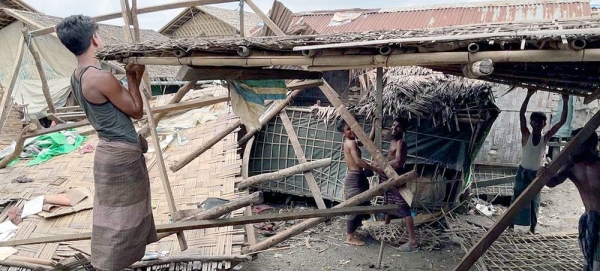
In Lebanon, all hopes are still hooked on the successful resolution of the impasse delaying the crucial formation of the new government, six months on from the general elections. A new government is seen as critical to bringing the country back from the brink of economic and social meltdown after years of political disruption of all Lebanese affairs by an armed group allied to Iran and dictating policies that suit its strategic local and regional agendas.
Today’s impasse is no different to the previous ones Lebanon has witnessed since its “Cedar Revolution” of 2005 led to the speedy withdrawal of Syrian forces from the country after nearly 30 years of direct rule. Hezbollah then inherited the role of supreme controller of the Lebanese state, replacing the decades-old Syrian influence sometimes through the use of force and at other times through political maneuvering.
Prime Minister-designate Saad Hariri, the top Sunni Muslim leader in the country, has been under increasing pressure from the Iranian-backed Shiite group Hezbollah, which insists that six Sunni legislators it is allied with should be represented in his new Cabinet. Hariri has flatly rejected the demand, saying they are not part of a parliamentary bloc and are therefore not entitled to have a minister in the Cabinet. Contrary to all expectations, Hezbollah will not back down and will insist on seeing its client Sunni MPs represented in the Cabinet, despite the embattled PM’s reservations.
The recent speech of Hezbollah leader Hassan Nasrallah left no one doubting the determination of the militia to impose Cabinet ministers selected from the fringe Sunni representatives and not those elected on Hariri and his Future Movement’s ticket in the May elections.
Over the past few years, the various Lebanese parties and groups belonging to all religious groupings and sects have been split along the recent divide of the country: Between those favoring an independent Lebanon free from Syrian and Iranian influence and those preferring to be pawns of Tehran and Damascus in internal and regional conflicts. The Sunni Muslim community loyal to Hariri will not be the exception.
Manufacturing representation to accommodate constitutional rules has served Hezbollah’s short and long-term interests. By the end of the 1980s, Hezbollah had sealed the fate of the Lebanese Shiite community and aligned it to the resistance bloc geared — with Iranian and Syrian support — to fight Israel and all core Arab projects to promote a peaceful settlement for the century-old Palestinian-Israeli conflict.
Maybe the elections of 2018 will be marked in history as the time when Hezbollah completed its long-time mission to control the state.
Mohamed Chebaro
The Christian Maronites, after years of resistance, have been split into two wings, one of which is loyal to Hezbollah. Even the Druze Muslims, the Armenian Lebanese and recently the Sunni Muslims have been split to ensure that the bloc led by Hezbollah in Parliament and government meets the constitutional criteria that calls for fair religious representation in all aspects of state decision-making.
Since its inception, Lebanon has followed precarious constitutionally protected rules, where all religious groupings and ethnicities must be adequately represented in state institutions. Maybe the elections of 2018 will be marked in history as the time when Hezbollah completed its long-time mission to control the state.
In the 1940s, Lebanon emerged as a state following a tacit Christian-Muslim agreement called the national covenant, which established a non-written quota system that accommodated existential religious fears by allocating six Christian seats in Parliament for every five Muslim seats.
The Taif Agreement of 1990, brokered by Saudi Arabia, ended the Lebanese Civil War and redistributed the seats of Parliament equitably between Christians and Muslim, limiting the powers of the Christian president in favor of the executive, headed by a Sunni Muslim.
In 2008, the Doha Agreement redrew that allocation map by reducing the power of the executive, insisting that a PM cannot form a government where no opposition is represented. Hence, a third of Cabinet seats were allocated to the opposition groups, headed by Hezbollah, setting a precedent that no one should be denied representation and allowing for a bloc in the Cabinet to veto whatever it felt was against its key interests.
Then, in this year’s elections, the March 14 Alliance of anti-Syrian and anti-Iranian regime forces in Lebanon was defeated. This was clearly due to many factors, but mainly Hezbollah’s success in re-tailoring the electoral law in a way that weakened established political parties in favor of smaller fringe groupings.
The next Lebanese government, whether called a government of national unity or disunity, will be Hezbollah’s government par excellence.
Though the group will have only three members in the 30-strong council of ministers, most government seats will be filled by loyalists ready to apply Hezbollah’s agenda internally and externally at a critical juncture, when a new wave of American sanctions have been imposed on the Lebanese party and its masters in Tehran.
Hariri could try to resist the appointment of pro-Hezbollah Sunni Muslims to his Cabinet, but not for long as the economic storms gathering around Lebanon necessitate an urgent compromise. Lebanon needs to navigate a safe passage in a stormy Middle East, where the re-imposition of US sanctions on Iran and its allies opens the door to grave uncertainties that could be translated into acts of instability in Lebanon, Gaza, Syria and Iraq, to mention but a few hotspots where Iran could retaliate.
Mohamed Chebaro is a British-Lebanese journalist with more than 25 years’ experience covering war, terrorism, defense, current affairs and diplomacy. He is also a media consultant and trainer.
Disclaimer: Views expressed by writers in this section are their own and do not necessarily reflect Arab News" point-of-view












